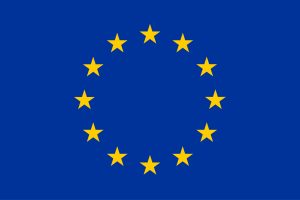Igor Di Marco
Persistent ferromagnetism in oxide heterostructures (PERMOXHET)
Polonez Bis 2 UMO-2022/45/P/ST3/04247
Principal investigator: Dr. Igor Di Marco, Prof. UMK
e-mail: igor.dimarco@umk.pl
Office B.2.26 (557A), Institute of Physics
Magnetism is a widespread phenomenon that has a major place in our everyday life. Magnetic materials are ubiquitous, included in all our technological devices, as well as in many industrial products. Speakers, power transformers, wind turbines, computers, and medical machines are just a few examples of things that characterize our life and that would not be available without magnetism. Hence, it is not surprising that much research in condensed matter physics is focused on magnetism, magnetic materials, and their applications. An important field that has emerged during the last two decades is based on the idea of developing a new type of electronics that takes advantage not only of the charge of the electrons, as traditionally done, but also of their magnetism. The potential of this idea is enormous, as it could make it possible to develop a completely new type of microelectronics, where one can at the same time perform logical operations (via the electronic charge) and transfer information (via the electronic magnetism). As the electronic magnetism is driven by the so-called spin, which is an internal degree of freedom of purely quantum nature, this new field of research has been labeled as spin electronics, or spintronics.
It is important to stress that spintronics is not a research-only field, as its first applications have already reached the market. The most famous example is the technology of modern hard drives, which is based on the giant magnetoresistance observed in multi-layered systems, a discovery that was granted the Nobel Prize in 2007. Research in this field is therefore very active, new devices are routinely proposed and there is a constant need of better performing materials. The aim of the present research project is precisely to understand the electronic and magnetic properties of multi-layered systems of transition metal oxides that may have a potential impact in spintronics. The systems to investigate have been recently shown to possess a robust ferromagnetism as well as spin-selective transport properties that would make them suitable as components in spin valves and related devices. However, many issues have yet to be clarified before these materials can find application in technology. Is the ferromagnetic ordering temperature higher than room temperature? What is the maximum thickness of the layers that can sustain the ferromagnetic order? How does the presence of structural defects, as e.g. oxygen vacancies, affect the magnetic order? Do these materials host more exotic quantum effects, as typical in complex oxides? If present, can these effects be useful for other applications?
To answer all the questions raised above, we will conduct a multi-scale computational study of the temperature dependent electronic and magnetic properties of selected layered transition metal oxides. The electronic and magnetic properties will be investigated directly at the atomic scale, using state-of-the-art electronic structure methods, based on density-functional theory (DFT) and dynamical mean-field theory (DMFT). The formation of the magnetic order at the nanoscale will be investigated by means of atomistic spin dynamics simulations, which require the results of the other calculations as input. This multi-scale approach will provide a very accurate description of the systems at hand and will clarify how useful these materials can be for future spintronics. In case of a positive outcome, a collaboration with prominent experimental scientists is already settled for attempting the physical realization in the laboratory.
The research sponsored by this grant will be implemented at the Faculty of Physics, Astronomy and Informatics of Nicolaus Copernicus University in Toruń.
Nicolaus Copernicus University is regarded as one of the strongest Polish universities in physics, astronomy and chemistry, based on the most recent national scientific evaluations. The Insitute of Physics has been the host of over 200 research projects in the last decade, funded by Polish and foreign institutions, including several grants within the European Framework Programme fo Research and Innovation Horizon 2020. The Faculty maintains an active international network, and is currently involved in over 40 international projects, with about 130 foreign institutions from 38 countries. The Institute of Physics hosts a variety of scientists working in atomic and condensed matter physics, with expertise in the study of superconductivity, electronic structure theory, quantum optics, molecular dynamics and low-dimensional systems. Over the last decade, the Institute of Physics has shown to be able to provide a strong mentoring support for scientists, with an impressive achievement in terms of external funding for establishing independent research groups.
Events
- Noc pełna nauki, September 27, 2024
Lecture “What matters about matter?”
https://portal.umk.pl/pl/article/noc-pelna-nauki-1 - XVII Seminarium Komputer w Szkolnym Laboratorium Przyrodniczym,
December 6, 2024
Lecture “Materials design from first principles: minimizing energy”
https://dydaktyka.fizyka.umk.pl/komputery_2024/program.html
This research is part of the project No. 2022/45/P/ST3/04247 co-funded by the National Science Centre and the European Union Framework Programme fo Research and Innovation Horizon 2020 under the Marie Skłodowska-Curie grant agreement No. 945339.

 Grudziądzka 5, 87-100 Toruń
Grudziądzka 5, 87-100 Toruń
